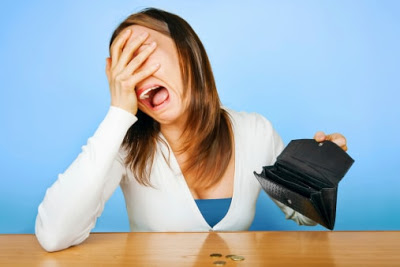by Staff writer
Generally speaking, a recession is when there is a significant decline in economic activity, usually for a certain period of time.
Recession affects virtually all sectors of the economy.
Below are 22 signs that usually indicate an economy is in recession:
1. Frequent job losses and high rate of unemployment
2. Prices of essential commodities shoot up [inflation]
These include food, fuel, water, etc.
3. Borrowers start defaulting
Borrowers are unable to pay back their loans.
4. General rise in begging
The country’s beggar population will rise.
5. Companies stop filling vacancies
During recession, the few people that remain employed become overworked. Many companies might also offer voluntary retirement programs in order to reduce their work-force and cut expenses.
6. Prices of property and stocks will come down
Still, there won’t be any corresponding increase in demand as nobody has the funds to buy them.
7. The country’s GDP goes down
When a country’s GDP [Gross Domestic Product] shows a continuous downward fall, then the economy is obviously in a recession.
8. Increase in hunger/starvation and rise in high blood pressure
9. Rise in crime rates
10. Rise in suicide rates
Studies have proven that overall suicide rates increase during periods of economic recession.
11. General weight loss among the country’s population
12. Anger and frustration levels go up
13. More people become religious
But they will still avoid any money-requiring programmes, such as church donation, tithes and offering.
14. Increase in insult and criticism of the Government
15. Sudden/unexpected outburst of tears
16. Desperation to migrate
17. Increase in domestic violence
18. Rise in improvisation skills and innovation
19. Killing and consumption of pet animals
20. Sudden fainting/loss of consciousness
21. Rise in alcohol in-take and other forms of addiction
22. Rise in divorce rates and break-up in relationships
***
How to control recession:
The government of a country is the key player to stop recession and to divert the economy to the path of growth.
The prime actions of a government on fighting against recession should be focused on:
a. Increasing money circulation
b. Containing inflation
c. Boosting per capita disposable income
d. Reducing per capita debt level
e. Balancing interest rates and
f. Ensuring an atmosphere conducive to business activities.
***
If the government of a country is wise and responsible enough, it can revive the comatose economy with one or two innovative ideas on fiscal policy.
This fiscal policy can be in the form of government spending or tax regulation.
By increasing government spending, government saves the idle production outputs and hence sustain the production activities.
Continued production benefit people by giving them wages, interest, rent and profits.
In the end, people’s income and buying power will increase.
Secondly, by cutting tax, government let people have more disposable income.
Disposable income is the income after paying tax.
An increase in disposable income means that people are able to spend more in the markets and hence revive the economy.
A devaluation in the exchange rate can also cause a boost in demand.
A fall in the value of the dollar will encourage export and discourage import, thereby increasing demand of locally made goods.
Generally, anything that can continuously put money into people’s wallets will help fight recession.



